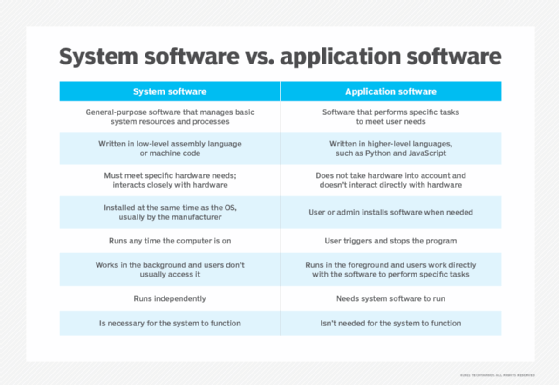System software and application programs are the two main types of computer software. Unlike system software, application software — often just called an application or app — performs a particular function for the end user. Some examples of application software include the following:
- web browsers
- email clients
- word processors
- spreadsheets

Application software and system software are coded differently. System software is written in system programming languages — such as Executive Systems Problem Oriented Language (ESPOL) — designed to provide easy access to the underlying computer hardware. Application programs are written in general-purpose languages, such as Pascal, that enable the program to use the same code on different platforms. Some languages, such as C, are used for both system and application software.
System software and application software are also triggered differently. System software is generally triggered when a computer or device is turned on, and it remains on until the device is powered down. Application software is triggered by an end user after the computer is turned on. Application software needs system software to function, whereas system software can run independently of application software.
In most cases, end users do not interact with system software because it runs in the background. By contrast, end users do interact with application software — installing it, booting it up, using it to perform certain tasks, booting it down and uninstalling it.

